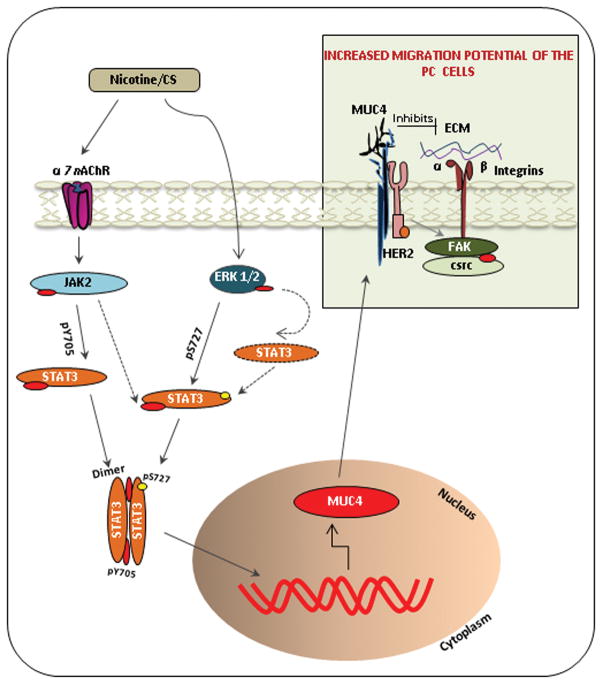Figure 7.
Nicotine-induced α7nAChR/JAK2 pathway in cooperation with nicotine-mediated ERK1/2 activation potentiates STAT3 activation in PC cells. The ERK1/2-mediated STAT3 phosphorylation (pS727) is known to enhance the DNA binding as well as to stabilize the cytoplasmic STAT3 levels. Whereas, the phosphorylated STAT3 (Y705) forms a dimer and translocate into the nucleus where it plays the key role in the up-regulation of MUC4 mucin expression. The transmembrane MUC4 mucin, upon expression on the membrane of the cells, causes an alteration in the migratory potential of PC cells. MUC4, being a large sized protein, could be speculated to either directly inhibit the interaction between the integrin and the extra cellular matrix (ECM) by stearic hindrance, or it could alter the downstream signaling pathways mediated by HER2 and c-Src activation, resulting in the activation of integrin and FAK signaling. This leads to the suppression of cell–cell adhesion, thereby causing an increase in the migratory potential of PC cells. Altogether, these events result in cancer cell spread and hence contribute to metastasis of pancreatic cancer.

